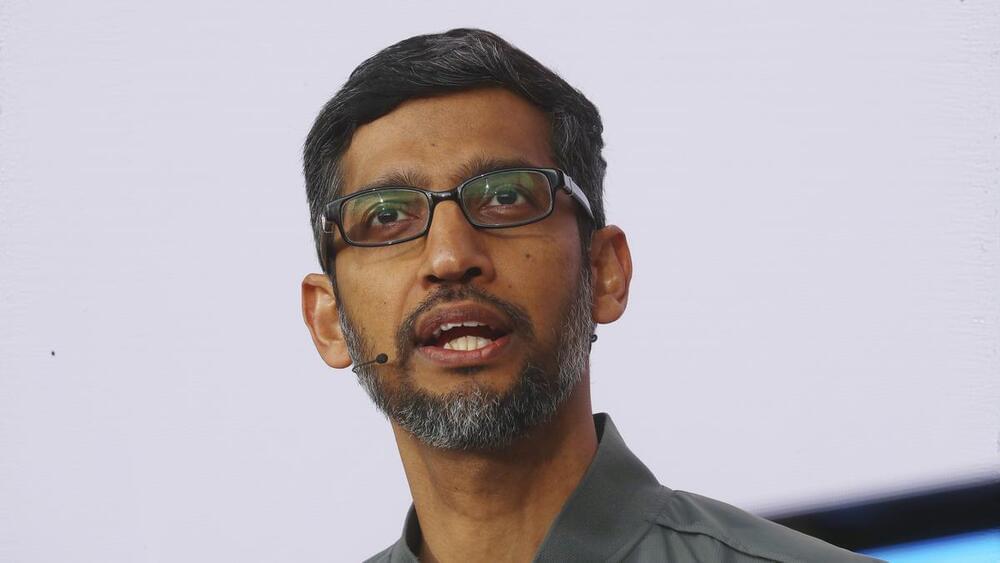A breakdown of tech salaries shows the disparity in compensation between CEO and median employee pay.





The Barkour benchmark is customizable and can be adapted to larger course areas with different configurations, similar to real dog agility competitions.
In the world of robotics, quadrupedal robots are becoming increasingly impressive with their abilities and tricks. However, comparing these robots and evaluating their capabilities is challenging due to the absence of standardized metrics.
To address this issue, a team of research scientists at Google has come up with an innovative solution: robot obstacle courses inspired by dog agility competitions. This new approach, known as Barkour, aims to establish a benchmark for assessing the agility and mobility of quadruped robots, a blog post said.

R. Srikumar is Senior Vice President, Head Portfolio Group at Mphasis.
As technology advances at an unprecedented rate, it is easy to assume that all countries and regions have equal access to the latest innovations. However, that is not always the case. Emerging markets often lack the infrastructure and resources necessary to keep up with technological advancements. But instead of being left behind, these regions have embraced “leapfrog innovation” to catch up and even surpass more developed markets.
Leapfrog innovation refers to the process of bypassing traditional technologies and adopting newer, more advanced technologies to meet the specific needs of emerging markets. This approach has increasingly become the norm in some areas of Southeast Asia and Africa, where the lack of infrastructure, limited resources and rapidly growing populations have made traditional development approaches difficult to implement.

In science fiction, space crews are often spared the boredom and inconvenience of long-distance space travel by being placed into a state of suspended animation. Now this goal may have come a step closer after scientists showed that hibernation can be artificially triggered in rodents using ultrasonic pulses.
The advance is seen as significant because the technique was effective in rats – animals that do not naturally hibernate. This raises the prospect that humans may also retain a vestigial hibernation circuit in the brain that could be artificially reactivated.

Discover how researchers have developed an innovative analog computer that utilizes water waves to predict chaotic events.
Have you ever wondered what the future holds? Do you think a computer learns from the past and predicts the future? Most of us would think of advanced AI models when posed with this question, but what if we told you that it could happen in a completely different way?
Picture a tank of water instead of a traditional circuitry processor. As surprising as it may sound, a group of researchers has built just that—a unique analog computer that utilizes water waves to forecast chaotic events.
JuSun/iStock.

A breakthrough in fluorescence microscopy has been achieved by the research group of Ralf Jungmann at the Max Planck Institute of Biochemistry (MPIB) and Ludwig-Maximilians-Universität (LMU) Munich. The team developed Resolution Enhancement by Sequential Imaging (RESI), a revolutionary technique that enhances the resolution of fluorescence microscopy down to the Ångström scale. This innovation is poised to usher in a paradigm shift in our approach to study biological systems with thus far unprecedented detail.
Cells, the fundamental units of life, contain a plethora of intricate structures, processes and mechanisms that uphold and perpetuate living systems. Many cellular core components, such as DNA, RNA, proteins and lipids, are just a few nanometers in size. This makes them substantially smaller than the resolution limit of traditional light microscopy. The exact composition and arrangement of these molecules and structures is thus often unknown, resulting in a lack of mechanistic understanding of fundamental aspects of biology.
In recent years, super-resolution techniques have made leaps and bounds to resolve many sub-cellular structures below the classical diffraction limit of light. Single molecule localization microscopy, or SMLM, is a super-resolution approach that can resolve structures on the order of ten nanometers in size by temporally separating their individual fluorescence emission.

For the past 20 years, the theory of disruptive innovation has been enormously influential in business circles and a powerful tool for predicting which industry entrants will succeed. Unfortunately, the theory has also been widely misunderstood, and the “disruptive” label has been applied too carelessly anytime a market newcomer shakes up well-established incumbents.
In this article, the architect of disruption theory, Clayton M. Christensen, and his coauthors correct some of the misinformation, describe how the thinking on the subject has evolved, and discuss the utility of the theory.
They start by clarifying what classic disruption entails—a small enterprise targeting overlooked customers with a novel but modest offering and gradually moving upmarket to challenge the industry leaders. They point out that Uber, commonly hailed as a disrupter, doesn’t actually fit the mold, and they explain that if managers don’t understand the nuances of disruption theory or apply its tenets correctly, they may not make the right strategic choices. Common mistakes, the authors say, include failing to view disruption as a gradual process (which may lead incumbents to ignore significant threats) and blindly accepting the “Disrupt or be disrupted” mantra (which may lead incumbents to jeopardize their core business as they try to defend against disruptive competitors).

Summary: Robotic voices with a charismatic tone can positively influence the creative performance of teams.
Researchers designed a social robot’s speech to sound charismatic, employing a confident, passionate tone and tested its effects on students during a creativity task.
The results revealed students were more innovative when the robot used a charismatic tone, leading to more original and elaborate ideas.